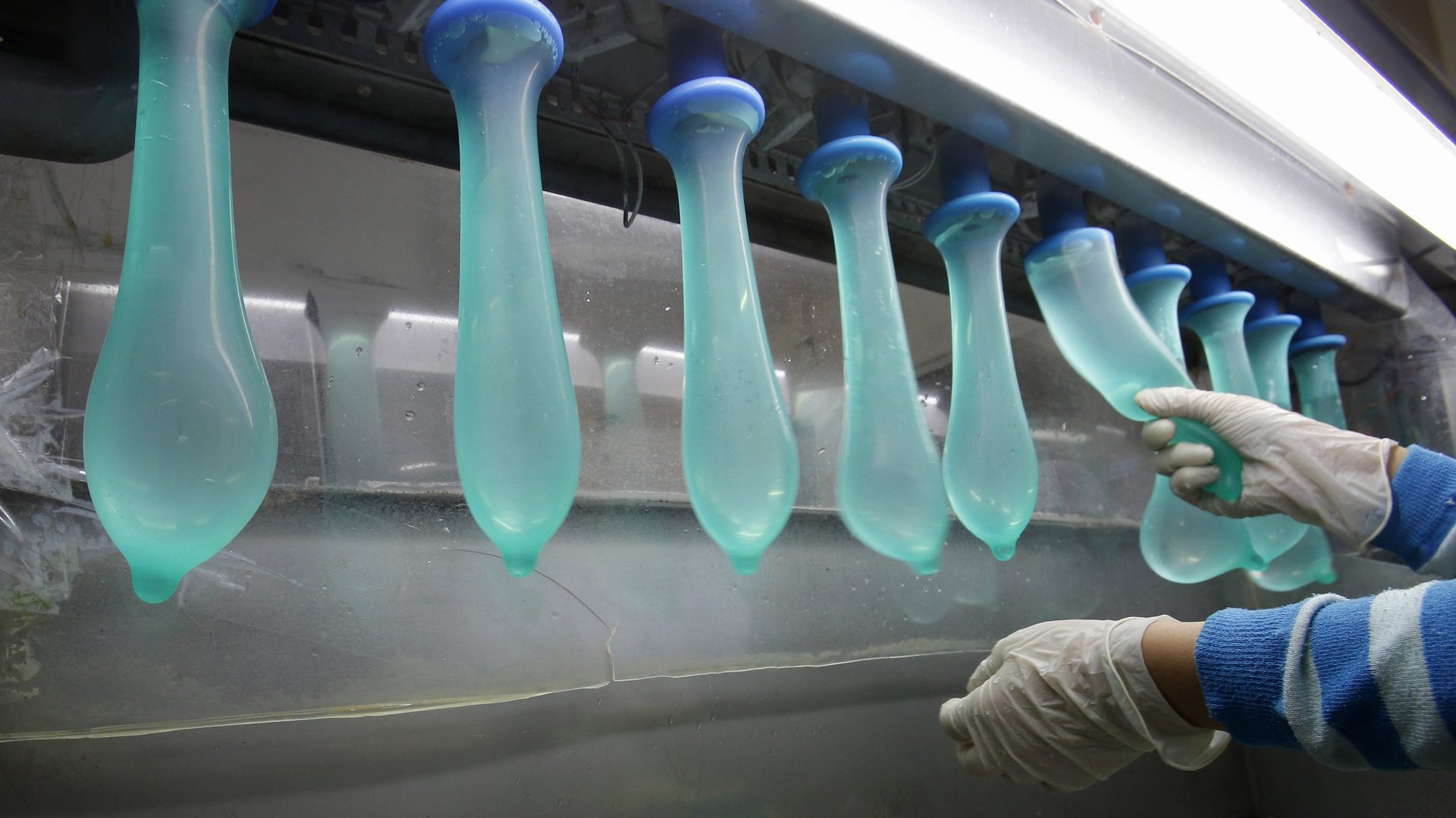The world’s largest condom manufacturer has had a surprisingly bad pandemic
Early in the covid-19 pandemic, Karex Berhad, the Malaysian company that makes one out of every five condoms sold worldwide, said it was bracing for double-digit growth in demand. The rationale was understandable: governments were asking people to work from home, after all, and no one wanted to have children during these uncertain times, Goh Miah Kiat, Karex’s chief executive, said in March 2020.


Early in the covid-19 pandemic, Karex Berhad, the Malaysian company that makes one out of every five condoms sold worldwide, said it was bracing for double-digit growth in demand. The rationale was understandable: governments were asking people to work from home, after all, and no one wanted to have children during these uncertain times, Goh Miah Kiat, Karex’s chief executive, said in March 2020.
Instead, Karex’s sales have dropped 40% over the past two years, Goh said in a recent interview with Nikkei—to the extent that Karex, which ordinarily produces 5.5 billion condoms a year, is starting to manufacture rubber gloves to boost its revenues. You’d assume, he said, that people at home “had nothing [to do] but have sex, right?” But covid-19 upended this expectation, just as it did so many others. Having safe, recreational sex during the pandemic was, it turned out, not easy when the world was being locked down.
The biggest buyers of condoms are governments and non-profits
It wasn’t just Karex; other condom companies watched their sales slump as well. Laxman Narasimhan, the chief executive of Reckitt Benckiser, the British manufacturer of Durex, was already discovering in April 2020 that, between fewer hook-ups, increased anxiety levels, and a decrease in “the number of intimate occasions,” condom purchases were declining as well. Worldwide, a number of studies found that sexual activity declined as the pandemic wore on.
Condom sales were also impacted not just by psychological shifts but also by new logistical hurdles. The shutdown of hotels and motels doomed holiday sex, staycation sex, infidelity sex, and several other kinds of extra-domestic intimacy; Goh pointed out that couples living in crowded homes often resort to hotels to find time with each other as well. For sex workers, business dried up.
Just as crucially, governments and aid agencies temporarily stopped buying and distributing condoms as part of sexual health programs. “For instance, in the United Kingdom,” Goh said, “the NHS [National Health Service] shut down most nonessential clinics because of covid, and sexual wellness clinics which hand out condoms were also closed.”
In aggregate, governments and non-profits buy billions of condoms every year. China gives out 1 billion free condoms annually, for instance, as part of its family planning program. The city of New York gives away more than 30 million condoms and other safe-sex products every year. In 2016, UNAIDS called for donors to aim to buy and distribute 20 billion condoms a year in low- and middle-income countries by 2020. The AIDS Healthcare Foundation, in 2018, distributed 600 million condoms in 37 countries; the same year, the International Planned Parenthood Federation disbursed another 300 million.
The suspension or slowdown of such programs during the pandemic contributed, in 2020, to Karex’s first full-year loss since it went public in 2013. And 2022 will restore some of the sector’s sheen only if it includes far fewer viral surges and lockdowns. Ironically, it appears, the condom industry’s best hopes for a rebound lie in people getting out of their bedrooms more.